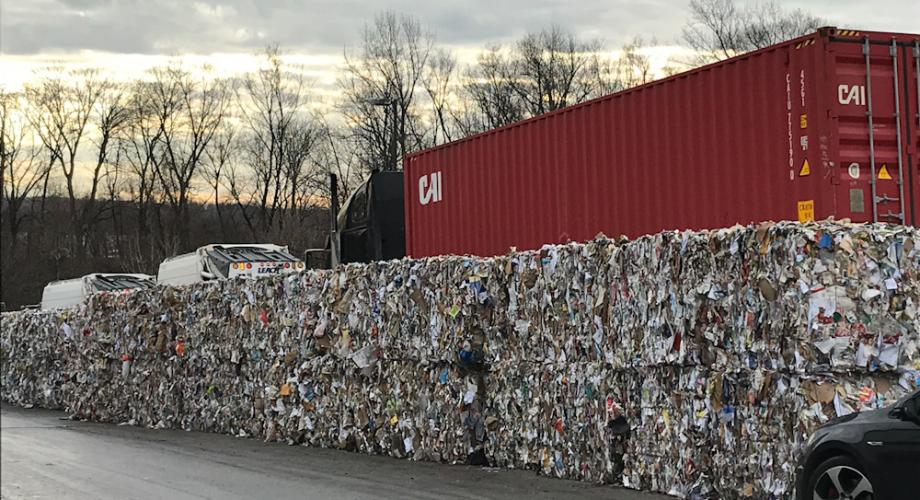Waste-hauling costs are increasing and recycling policies are becoming stricter. Apartment operators are seeing the effects and are taking a variety of steps to improve efficiency and cost-effectiveness. In Part 3 of this 13-part, in-depth report, we examine how apartment companies are in a disadvantage in most franchise markets.
Rates are non-negotiable, and usually work against the property management company.
The number of jurisdictions that manage waste through franchising is growing and spreading. This takes negotiation out of the picture for apartment operators.
“This is popping up in pockets all over the country,” Camden’s Rick Pippin says. “We see it in Los Angeles, Irvine, Calif., Charlotte and many markets in Florida. I’m not a fan of franchise markets. Free enterprise is the greatest thing that has happened in our country’s history. I’d like to stick to that.”
In Los Angeles, contamination fees are increasing at a slower pace than many other markets, according to Richard Bates, National Accounts, Waste Management, because the City has very tight guidelines on what constitutes a fee. For fees, it involves a multi-step process that requires the City to validate fees against photos and agree that the fee is worthy. Even then, the fees for the first two incidents are very small, but can escalate going forward. Overall, fees being assessed are relatively low when compared to other markets, but that could change as the contamination fee validation process becomes more defined. Fees—and how they are set—are receiving extra attention by apartment procurement officers when they bid or renegotiate contracts or dispute charges. Because Los Angeles is a franchised market, communities cannot bid or renegotiate contracts or dispute rates the franchise agreement allows haulers to charge.
Bozzuto’s Peter Zadoretzky says franchised company collection cost patterns are mixed, depending on the region or market. “Larger companies are buying local haulers and consolidating at a high rate, which is driving account demand for remaining local haulers and providing us with increasingly competitive pricing and negotiations,” he says.
LumaCorp’s Ian Mattingly says the franchise rate he pays in Dallas suburb Garland have not increased in more than three years. “However, in Dallas, which does not have a monopoly franchise agreement, we have seen rates rise as much as 58 percent during that period.”
NRP Management says the price per cubic yard of trash removal is 18 percent higher in its franchised locations, which typically are its more outlying areas (commonly outside metro areas), according to Michael Mulloy, Vice President of Facilities and Maintenance at The NRP Group. “However, this is somewhat offset because in these franchised locations, recycling is often offered for free,” Mulloy says.
Prometheus’ Mary Nitschke says franchise market pricing is roughly three times higher than markets with the freedom to bid. She aims to control rate increases contractually on her three-year deals.
“If I do a three-year deal, I can lock in how much they can annually increase the rate; usually, it’s a single-digit rate increase,” she says. “But my franchised markets increase rates by 10 percent to 12 percent annually and I have no say, no control.”
Pinnacle’s Raymond van Beveren says the financial impact of markets moving to franchised service providers varies based on the goals of each municipality implementing them.
“In some cases, franchise markets do offer very competitive rates,” he says. “However, in markets where municipalities are implementing new regulations and increased recycling requirements, we can see rates increase substantially.”
Tom Gwyn, Owner, for smaller operator North Carolina-based Apartment Dynamics questions his franchise rates.
“In one market, the city hauler is much lower than prevailing rates,” Gwyn says. “In another, which is more urban and student-driven, we had to pay more.
“My largest objection to paying trash fees is that we pay the same amount of property taxes as homeowners, but we have to pay for residential trash pick-up, even though it is more convenient to collect trash at an apartment community: One trash compactor or a few Dumpsters compared to picking up individual trash containers at 300 single-family homes.”
Kamson Corporation says in Burlington County (N.J.), garbage and recycling services for apartment communities are combined for all municipalities in the county.
“Pickup there for us has been very efficient, but they are also sticklers on regulation,” Kamson’s Mike Beirne says. “Since a state Supreme Court decision about 20 years ago, garbage collection is considered a municipal service covered under real estate taxes. Towns either pick-up the trash or they have to reimburse you for private services rendered. So, for many properties, rate increases aren’t clearly shown on invoices. This means we’d have to dig into our real estate taxes in an appeal or question the reimbursement. “Where we don’t have [a franchising arrangement] it becomes a double-edged sword. Municipal pickup is often inefficient and leads to customer-service issues, which a private contractor would address. Some towns fight and try to minimize the reimbursement they return to you. If you use a private hauler, it can be like pulling teeth. In our other markets, we negotiate garbage through a broker with a long-term contract, and rate hikes have to be negotiated and cannot be arbitrarily assigned.”
Back to the Trash Talking in-depth report or read the part 4 story: Waste Brokers & Trash Compactor Monitors: Do They Help?
